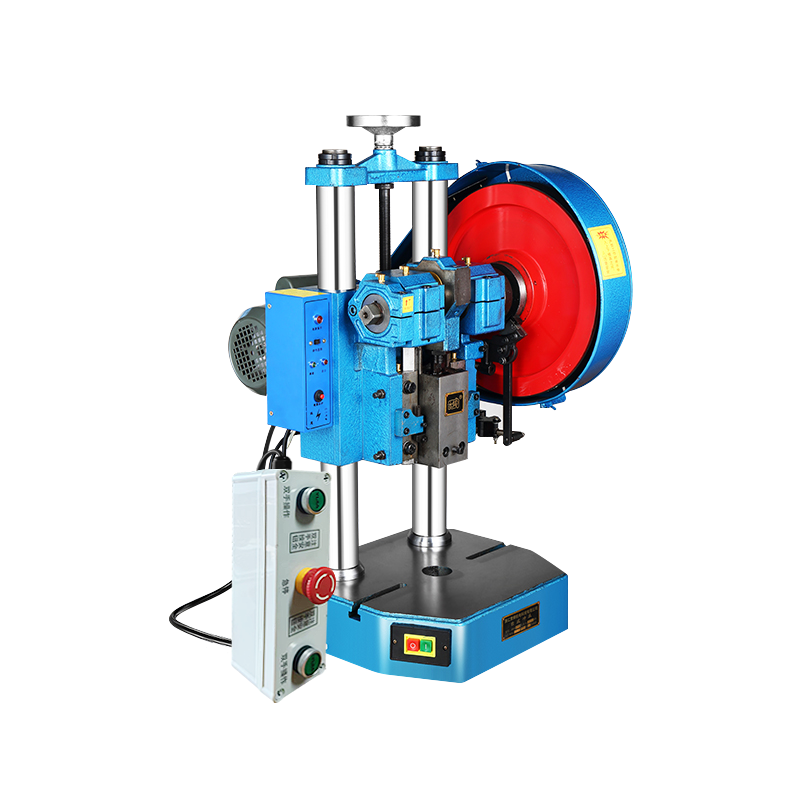Exploring the Versatility of a Benchtop Punch Press in Various Industries
China Wholesale Benchtop Sheet Metal Hole Punch Press Factory
A Benchtop Punch Press is a vital tool in many industries, offering precision, efficiency, and adaptability for a wide range of applications. Whether used in metal fabrication, electronics, automotive, or small-scale manufacturing, this compact yet powerful machine provides consistent results while optimizing production processes. Its ability to perform tasks such as punching, stamping, and forming makes it an essential piece of equipment for businesses seeking accuracy and efficiency.

A Benchtop Punch Press is designed for punching holes, shaping materials, and performing repetitive stamping tasks. Unlike larger industrial presses, it is compact, making it suitable for workshops, laboratories, and small production facilities. Its ease of use and ability to apply controlled force allows operators to achieve precise cuts and indentations in a variety of materials, including metals, plastics, and composites.
With adjustable settings, a China Benchtop Punch Press can be configured for different punching depths and force applications, ensuring versatility in handling various production requirements. The machine’s efficiency in performing repetitive tasks with uniform results makes it an ideal choice for industries that require precision in component manufacturing.
In the metal fabrication industry, it is widely used for creating holes, notches, and custom shapes in sheet metal and other metallic components. It is particularly useful for small and medium-sized production runs where accuracy and repeatability are essential.
Sheet metal workers use a Benchtop Punch Press to manufacture brackets, panels, enclosures, and other precision-cut components. By streamlining the punching process, this machine reduces manual labor and increases efficiency while ensuring high-quality results.
The electronics industry relies on a Benchtop Punch Press for creating precise openings in circuit boards, control panels, and enclosures. As electronic devices become more compact, the need for precision punching increases. This machine ensures that connectors, ports, and mounting points are accurately placed, reducing errors and improving assembly efficiency.
Automotive manufacturers use it for producing small metal components, gaskets, and brackets. Given the high standards for precision and durability in the automotive industry, this machine is essential for creating parts that fit seamlessly within larger assemblies.
Small-scale automotive workshops and aftermarket parts manufacturers also benefit from the flexibility of a Benchtop Punch Press, as it allows them to produce custom components efficiently. Whether creating mounting holes for accessories or shaping small metal parts, this machine enhances productivity and ensures uniformity in production.
While primarily associated with metalworking, a Wholesale Metal Hole Punch Press is also useful in plastic and composite material processing. Industries producing lightweight components for aerospace, medical devices, and packaging often require precise hole punching and shaping.
By adjusting pressure settings and tooling, manufacturers can use a Benchtop Punch Press to work with non-metallic materials without causing deformation or damage. This adaptability makes it an essential tool for companies looking to process a variety of materials efficiently.
A Benchtop Punch Press is particularly beneficial for small-scale manufacturers and prototyping workshops. Unlike larger industrial presses that require significant space and investment, this machine offers a cost-effective solution for businesses looking to enhance their production capabilities without committing to large-scale equipment.
Using a Sheet Metal Punch Press Factory improves workplace efficiency by reducing the need for manual hole-punching and cutting. Operators can complete tasks faster and with greater precision, reducing the likelihood of errors and material waste.
The versatility of a Benchtop Punch Press makes it an indispensable tool across multiple industries. From metal fabrication and electronics manufacturing to automotive production and composite processing, its ability to deliver precision, efficiency, and adaptability ensures its continued relevance in modern manufacturing.
-
Feedback

 English
English 中文简体
中文简体






